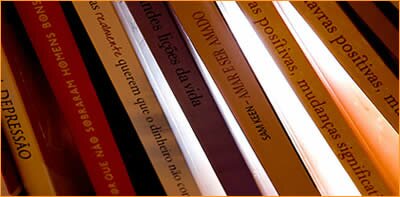Brazilian Literature
Brazilian’s literature refers to literature written in the Portuguese languages by Brazilians or in Brazil, even if previous to Brazil's independence from Portugal, in 1822. Throughout the 20th century Brazilian literature progressively changed.
Colonial periodLiterature of Brazil began in the 16th century, the first document that might be considered Brazilian literature is the Carta de Pero Vaz de Caminha (Pero Vaz de Caminha's letter), which illustrate the wonders of the new land. The next two centuries the literary creation was controlled by journals of travelers and descriptive treatises on “Portuguese America”.A more clearly literary example was José Basilio da Gama´s, who wrote epic poem commemorating the conquest of the Missions by the Portuguese. In the late 17th century, the first native Brazilian writer appeared, Gregório de Matos Guerra, who created a considerable amount of satirical, religious, and secular poetry. Throughout the mid-18th century, Neoclassicism was extensive. The literature was often created by associates of temporary or semi-permanent academies and most of the content was in the pastoral genre. The most significant poets were Cláudio Manoel da Costa, Tomás Antônio Gonzaga, Inácio José de Alvarenga Peixoto and Manuel Inácio da Silva Alvarenga, all them implicated in an insurrection against the colonial power. RomanticismThe Romanticism began influencing Brazilian poetry on a great range, in 1836, predominantly through the efforts of the expatriate poet Domingos José Gonçalves de Magalhães.This first romantic generation was characterized by its exaggerated affect, nationalism, celebration of nature and the first introduction of colloquial language. In this period the Brazilian literature created some of the initial standard works. Some novelists like Joaquim Manuel de Macedo, Manuel Antônio de Almeida and José de Alencar published their productions the newspapers and became national celebrities. The romantic genre soon became very popular. The second romantic generation, started around 1850, was centered in morbidity and death. The two movements coincided in one of the most significant achievements of the Romantic period: the establishment of a Brazilian national identity founded on Indian ancestry and the wealthy nature of the country. The two main Brazilian romantic poets were Antônio Gonçalves Dias, who exalted the native people and the native soil, and Antônio de Castro Alves, an organizer in the fight for the abolition of slavery. He initiated a new dimension into the emerging "Brazilianism." Realism RealismIn the middle of the 19th century, a new type of prose writing appeared with a series of social transformations including analysis of the native people and narrative of the environment, in the authors such as Franklin Távora and João Simões Lopes Neto.This genre was not very original at first, but it took on unusual significance because of Machado de Assis and Euclides da Cunha. Pre-ModernismThroughout the period between 1895 an 1922, there is no clear dominance of any style; there are some early demonstrations of Modernism.Some authors of this time show a distinctly modern nature, such as Monteiro Lobato, Lima Barreto and Simões Lopes Neto. ContemporaryContemporary Brazilian literature is centered on city life and all its features: loneliness, hostility, political problems and media control. Some writers such as Rubem Fonseca, Sérgio Sant'Anna have written significant books with these subjects in the 70s, breaking new land in Brazilian literature, up until then generally having dealt with rural life.Some poets such as Ferreira Gullar and Manoel de Barros are the most celebrated in Brazil, the former had been nominated for the Nobel Prize. Other writer is Paulo Coelho, he is the all time the best-selling Portuguese language author. Brazilian’s critics generally considered as a lesser author, whose work is too simple and similar to self-help books. Another author of importance is Joyce Cavalcante, who appeared in the 1990s as a writer able to communicate the experience of women in modern Brazil as well as the enduring social problems of the Northeast. Brazilian Literature |
|